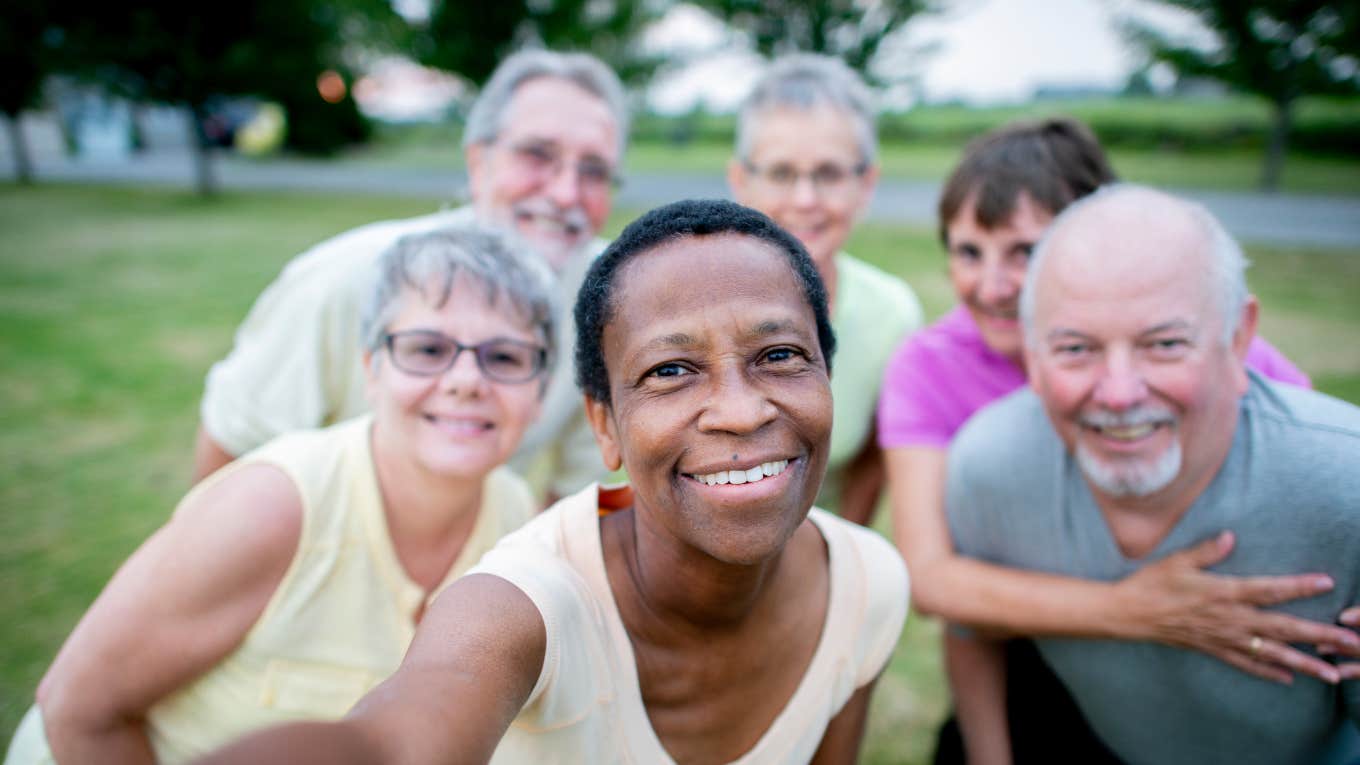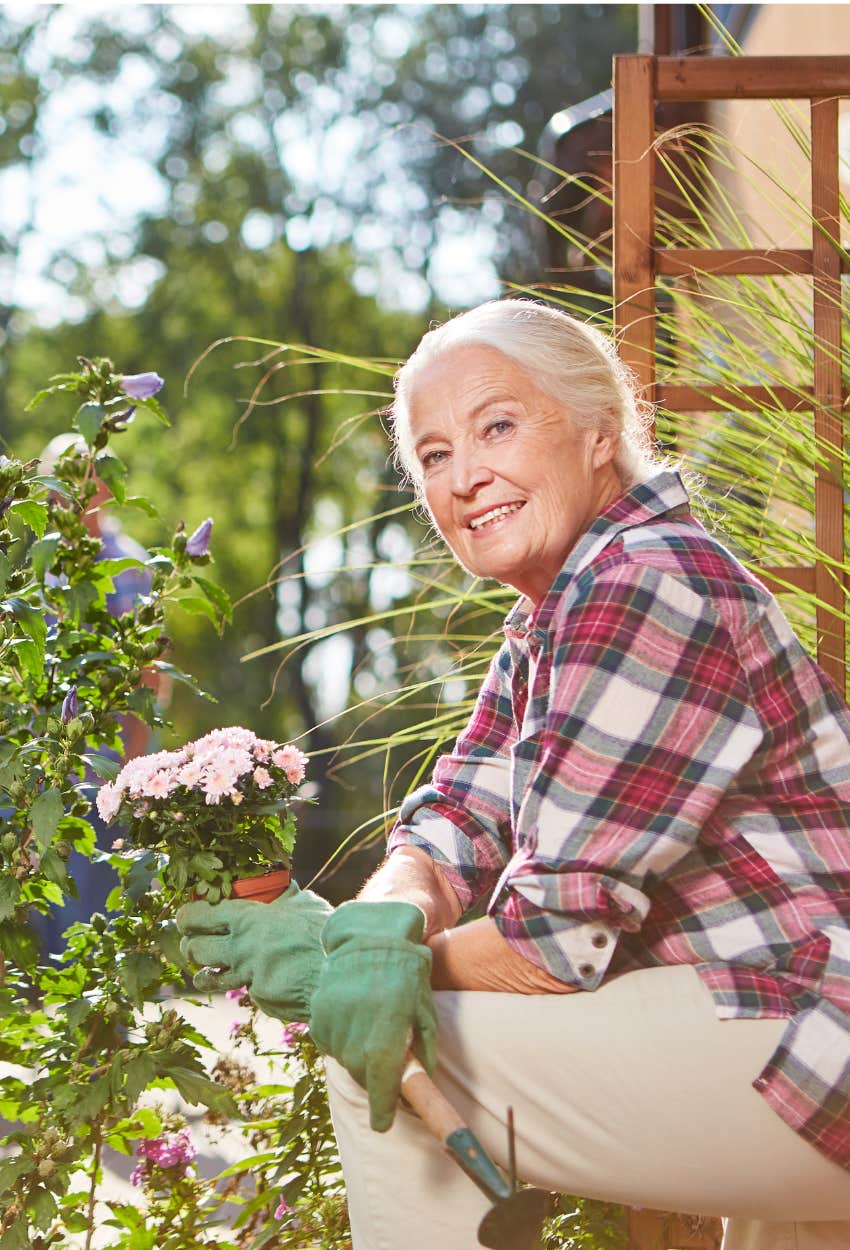If You Can Answer ‘Yes’ To These 5 Questions, You’re Doing Way Better Than Most
If you're already doing these, you're in good shape. And if not, it's never too late to start!
 FatCamera | Getty Images Signature | Canva Pro
FatCamera | Getty Images Signature | Canva Pro Getting older is no picnic no matter what, but a combination of life circumstances and genetics can make it a very different experience person to person. But as we've all heard, there are life choices we can make that can significantly impact how aging affects us.
So what are the magic solutions to age gracefully instead of facing the situations we all fear most about getting older? A simple quiz can provide a useful insight into what sort of future you're setting yourself up for, and the basic changes you can make to put yourself on the right path.
This five-question test reveals if you're on a path to stay healthy as you age:
The quiz, called "Take Five To Age Well," was created as part of British education initiative The Open University and aims to give people of all ages five simple things they can focus on to set themselves up for healthy golden years.
According to Trinity College Dublin professor Rose Anne Kennedy's research, 70-80% of how we age is not in our genes but is, in fact, determined by environmental factors, meaning that we're more in control of how we age than we realize.
So, experts affiliated with The Open University and the charity Age UK have come up with what they call the Five Pillars of Aging Well, which they say can lay a foundation for leveraging these environmental factors to ensure we keep healthy and continue to thrive well into old age.
1. Are you eating healthy?
Don't worry, this isn't about going on some super restrictive diet. Rather, it's about emphasizing the good stuff, like fruits and vegetables, and moderating the bad stuff, like sweets and ultra-processed foods. Due to metabolic changes that tend to decrease food intake in seniors, malnutrition is very common in old age, so ensuring your diet contains sufficient variety, nutrition, and vitamins is key.
2. Are you staying hydrated?
 Robert Kneschke | Canva Pro
Robert Kneschke | Canva Pro
Experts say that the rapid changes occurring in our bodies as we age both impact and are impacted by our hydration levels, meaning we dehydrate more easily, and the aging of our organs and systems accelerates when we're dehydrated. This can lead to worsening cognitive and mobility issues, which in turn can affect our independence as we age. Metabolic changes also mean that dehydration tends to creep up on us more when we're old than when we're young, so remember to keep drinking plenty of water.
3. Are you staying physically active?
You don't have to join a gym and start powerlifting in your old age, or anything, but experts say that regular physical activity that keeps the blood flowing can be incredibly impactful on the rate and intensity of aging.
This includes our cognitive aging and the onset of things like dementia. If you feel up to taking on a swimming hobby or getting into hiking, there's no time like the present. However, experts say that even a daily walk can make all the difference.
4. Are you stimulating your brain?
Research shows that learning new things, whether it's studying a language or just doing crossword puzzles, can be incredibly protective of our brains as we age.
Taking a drawing class, reading the newspaper, learning an instrument or handicraft, gardening, anything that requires mental skills, helps enhance and preserve our brains' neuroplasticity, which benefits everything from our mental health to cognitive acuity.
5. Are you maintaining social connections?
Loneliness and isolation have been found to be highly correlated with negative health outcomes and a steeper decline in old age. Loneliness has a major impact on our mental health, for starters, which affects all our other bodily systems.
 Monkey Business Images | Canva Pro
Monkey Business Images | Canva Pro
But it's cognitive decline where the impacts of loneliness and isolation are the most acute. Maintaining ties not just to friends and family, but community organizations, faith groups, and other clubs can make a huge difference.
It's not always easy to find new connections later in life, but digging into local groups focused on common interests, say, a book club or pickleball league, is a great way to give your brain the social stimulation it needs to keep you healthy.
John Sundholm is a writer, editor, and video personality with 20 years of experience in media and entertainment. He covers culture, mental health, and human interest topics.

